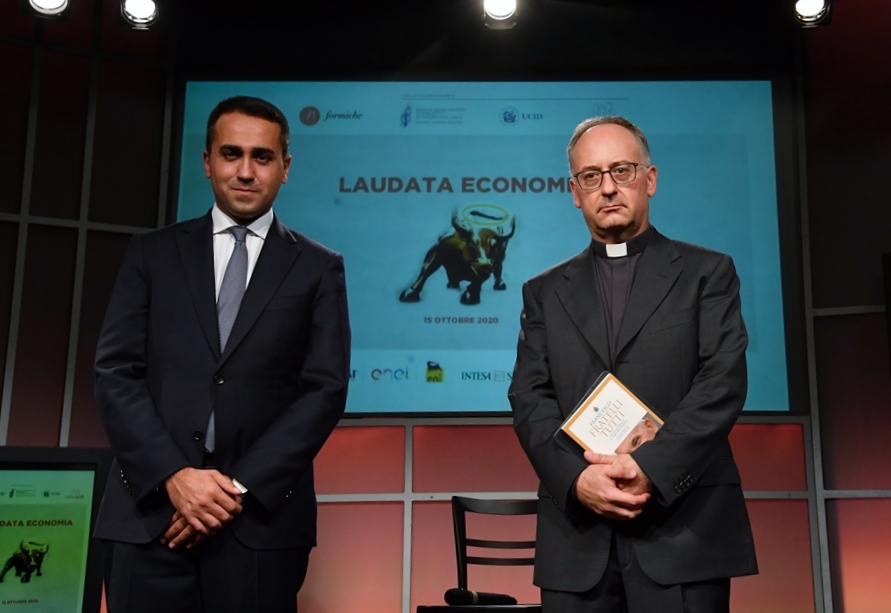The Italian foreign minister Luigi Di Maio, 34, seems to have grown into his political maturity. His speech at the Laudata Economia forum, organised by Formiche.net, betrays the experience he’s been accumulating in his past year as foreign minister.
Once a rowdy anti-establishment activist, Mr Di Maio honed his skills and bridled his passion at the school of Italian foreign diplomacy, as he said himself at the conference. He links his geopolitical philosophy to the Catholic ideals enshrined in Pope Francis’s latest encyclical Fratelli tutti (“All brothers”).
To him, the encyclical is a “geopolitical treaty” as it “displays multilateralism as a field choice”. This is an option that a few years back wouldn’t have startled anyone, but today is looking like the alternative to the world’s worsening bilateral conflicts.
“The great problems, such as Covid, cannot be solved with a nationalistic or bilateral mentality” said Father Antonio Spadaro, advisor to the Pope, director of the Jesuit magazine La Civiltà Cattolica and co-speaker during that segment of the event.
Mr Di Maio hears the Christian reasoning. He drew from the pope’s frequent motto “nobody can save themselves alone” to explain the “Italian way” in foreign relations: open dialogue with whomever, rejecting armed intervention, and exerting instead a “kind power” made out of soft power diplomacy.
This contrasts with the increasing polarisation between global powers such as China and the US. Mr Di Maio seemed to point at the allergy of president Donald Trump‘s administration to multilateral tables, as well as the power dynamics in countries such as Libya, where the likes of Russia and Turkey face off by supporting warring sides.
“Today, all the crises-ridden areas see two main opposing forces. There are those who want to resolve them with weapons, and those who would rather use diplomacy.” Italy has often been accused of keeping its foot in two fields on the world stage, but that reasoning is faulty of treating such crises like a football match, argued Mr Di Maio.
Drawing once again from the Pope’s encyclical, he added that “it’s impossible to work with nationalisms” and “who speaks through slogans has not understood that the world is changed” – perhaps addressing those Italian politicians, some of whom are members of his own party, who stick with isolationism and protectionism.
Mr Di Maio proceeded to expose how the “soft power” philosophy would guide Italy’s future actions in the most pressing areas abroad. He mentioned the Navalny matter and the Mediterranean crises (Lebanon, the Libyan war, the Greek-Turkish tensions, and the instability of Northern African countries) as situations where Rome would continue to exert its stabilising influence by facilitating dialogue between all sides.
He cited as examples of soft power an Italian-built hospital in Cairo, Egypt, and his ministry’s project to create an e-learning platform for Northern Africans, powered by Italy’s own universities.
This political philosophy is interlinked with that of the Vatican. Take the issue of migration: Father Spadaro quipped that “if we’re all brothers, then we must also be citizens,” and Mr Di Maio declared that “migratory phenomena are not uncontrollable if we broker partnerships with the EU to revive the economies and social development of the countries of origin.”
He then unexpectedly praised the UN, “substantially the only place where we see the great powers voting in the same way, often saving lives.” The EU, he said, should be granted its place in the UN’s Security Council, an institution still “stuck in the post-war period.”
Finally, he promised that Italy would impress this multilateralist and “kind power” approach as president country of the G20 in 2021 and co-president of the COP26 climate convention, scheduled for November.








